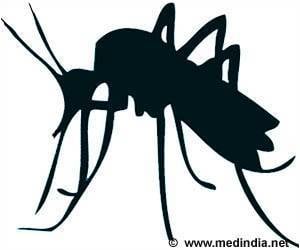The artemisinin-resistant malaria parasite has not yet been documented in Africa, but has been spreading rapidly through southeast Asia.

A statement from the United States' National Institute of Allergy and Infectious Diseases (NIAID), which took part in the study, said, "The discovery suggests Africa -- where malaria will cause an estimated 400,000 deaths in 2015, is more at risk for drug-resistant malaria infections than previously thought. This, in turn, could further compromise efforts to prevent and eliminate the disease."
Scientists wanted to study whether the Plasmodium falciparum parasite could infect Africa's Anopheles coluzzii mosquito. They tried to infect a variety of mosquito species, including the African type, with resistant parasites from Cambodia, and it worked. The NIAID said, "The scientists also discovered a shared genetic background among artemisinin-resistant parasites that may enable them to infect diverse mosquito species by evading their immune systems. The ability of artemisinin-resistant parasites to infect such highly diverse Anopheles species may explain the rapid expansion of these parasites in Cambodia and neighboring countries, and further compromise efforts to prevent their global spread."
The study was published in Nature Communications.
Source-AFP















